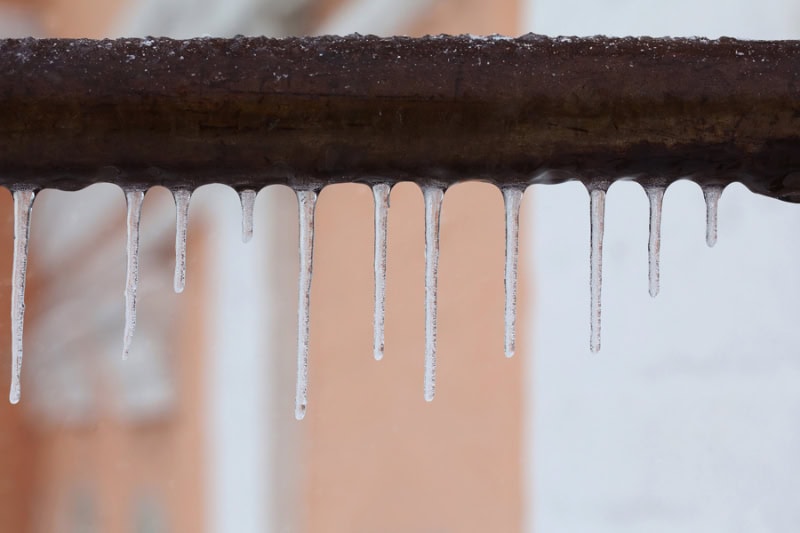Protect Your Plumbing From Freezing Weather

As temperatures drop in Idaho, your plumbing system faces a hidden enemy: freezing weather. When water inside pipes freezes, it expands, leading to increased pressure that can cause pipes to crack or burst.
Not only can this lead to costly repairs, but it can also disrupt your daily routine and create extensive water damage to your home. With a little preparation, you can protect your plumbing and avoid these winter headaches.
Whether it’s ensuring proper insulation around exposed pipes, taking preventive measures during sudden cold snaps in Boise, or addressing common weak points in your plumbing system, safeguarding your pipes is essential for a stress-free winter.
In this blog, Western Heating & Air Conditioning guides you through practical steps to protect your plumbing system from freezing weather. From simple tips like leaving your faucets dripping to more comprehensive solutions like adding pipe insulation, you’ll find actionable advice to keep your home safe and dry.
Don’t let freezing weather catch you off guard—take proactive measures to winterize your plumbing and enjoy peace of mind throughout the cold season.
How to Prevent Frozen Pipes
With temperatures expected to dip well below the freezing mark over the next months here in Boise, our team at Western Heating & Air Conditioning has some tips to protect your plumbing equipment:
- Always keep your heat on with the thermostat set no lower than 55 degrees—even when you’re away from home. A consistently warm indoor temperature helps protect pipes inside the walls and under floors.
- Let room-temperature water trickle from all your faucets to keep the water flowing. Even a slight trickle can help relieve pressure and prevent freezing.
- Open cabinet doors, especially in the kitchen and bathroom, allowing warm air to circulate around pipes located under sinks and near exterior walls.
- Protect any exposed pipes outdoors, in the attic, or in the crawl space using pipe insulation or heat tape. Both are inexpensive and can make a big difference when the temperature drops.
- Protect your water heater with an insulation blanket. Older water heaters especially benefit from added insulation, which helps them retain heat, reduces energy use, and prevents freezing.
- Locate your main shut-off water valve in the event of a pipe burst. Knowing where this is located—and how to turn it off—can help you quickly stop the flow of water and minimize damage.
- Seal any leaks around electrical wiring, dryer vents, and pipes. Cold air often enters through these gaps, putting nearby plumbing at risk. Use caulk or insulation to seal them up.
- Drain and disconnect garden hoses. Shut off outdoor spigots from inside your home and install faucet covers to keep them protected during hard freezes.
- Keep the garage door shut if there are water supply lines in the garage. Insulated garage doors are a great investment, but simply keeping the door closed can help trap warmer air and protect any plumbing nearby.
Taking these steps not only helps prevent pipes from freezing but can also improve your home’s overall energy efficiency throughout the winter.
How to Thaw Frozen Pipes
Bursting pipes are among the most common home repair issues during freezing weather. A half-inch pipe can spew as much as 50 gallons per minute! If you turn on your faucet and only a trickle comes out, it could be because of a frozen pipe.
Here are some tips on how to thaw a frozen pipe:
- Keep the faucet open, but shut off the main water valve. As you treat the frozen pipe and it begins to thaw, water will start to flow through the frozen area. Running water through the pipe will help melt the ice in it.
- Apply heat to the section of the pipe using an electric heating pad wrapped around the pipe, an electric hair dryer, or warmed towels wrapped around the pipes. You can also use a portable space heater—but keep it away from flammable materials.
- Do not use a blowtorch, kerosene, propane heater, charcoal stove, or other open flame devices. These can be extremely dangerous and are not safe for indoor use.
- Apply heat until the full water pressure is restored. Be patient—rushing the process can cause pipes to crack from thermal shock.
It’s also a good idea to inspect the rest of your plumbing once you’ve resolved a frozen pipe, as other sections may be affected as well.
Call Your Plumbing Experts in Boise, Today
Are you having trouble locating the frozen area? Do you suspect a burst pipe or hear unusual sounds in the walls? Give Western Heating & Air Conditioning a call right away! Our licensed plumbers will address the problem and provide other tips to keep your Boise, home comfortable throughout the cold winter.
We’ll inspect your system, safely thaw any problem areas, and recommend preventive measures to help you avoid similar issues in the future.
Call us at 208-319-1736 or request service online to schedule service or get help fast. Stay warm, stay safe, and trust Western Heating & Air Conditioning to keep your plumbing protected this winter.
Need HVAC Service?
Contact the experts at Western Heating & Air Conditioning.
Call us at 208-319-1736!
